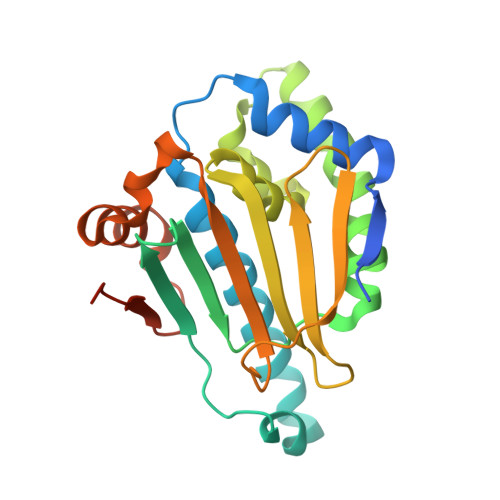Correlation between chemotype-dependent binding conformations of HSP90 alpha / beta and isoform selectivity-Implications for the structure-based design of HSP90 alpha / beta selective inhibitors for treating neurodegenerative diseases.
Ernst, J.T., Liu, M., Zuccola, H., Neubert, T., Beaumont, K., Turnbull, A., Kallel, A., Vought, B., Stamos, D.(2014) Bioorg Med Chem Lett 24: 204-208
- PubMed: 24332488
- DOI: https://doi.org/10.1016/j.bmcl.2013.11.036
- Primary Citation of Related Structures:
4NH7, 4NH8, 4NH9 - PubMed Abstract:
HSP90 continues to be a target of interest for neurodegeneration indications. Selective knockdown of the HSP90 cytosolic isoforms α and β is sufficient to reduce mutant huntingtin protein levels in vitro. Chemotype-dependent binding conformations of HSP90α/β appear to strongly influence isoform selectivity. The rational design of HSP90α/β inhibitors selective versus the mitochondrial (TRAP1) and endoplasmic reticulum (GRP94) isoforms offers a potential mitigating strategy for mechanism-based toxicities. Better tolerated HSP90 inhibitors would be attractive for targeting chronic neurodegenerative diseases such as Huntington's disease.
Organizational Affiliation:
Vertex Pharmaceuticals, Department of Chemistry and Drug Innovation, 11010 Torreyana Road, San Diego, CA 92121, United States. Electronic address: Justin_Ernst@vrtx.com.















